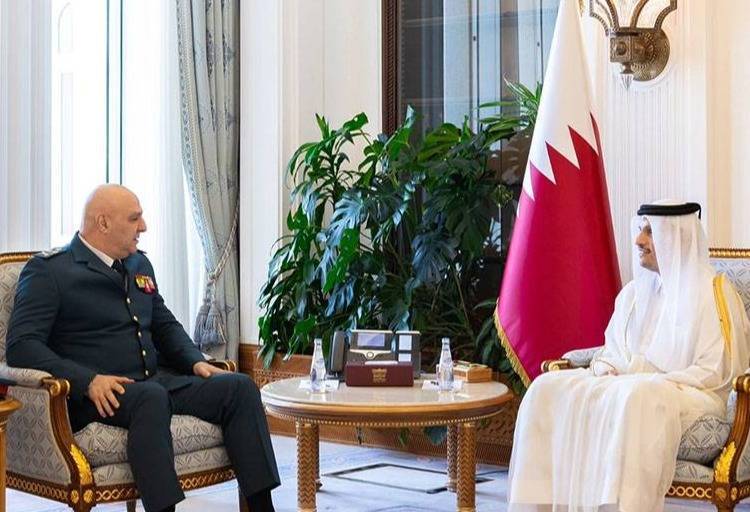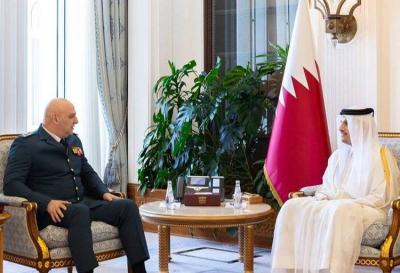There is no voice louder than the issue of displaced persons, which has become a matter of intense internal polarization, having taken center stage in various internal concerns. This topic is expected to be thoroughly addressed in the parliamentary session called by Speaker Nabih Berri tomorrow, where several MPs will discuss the repercussions of displacement on the Lebanese people and its significantly negative impact on internal conditions, as it has become a burden far beyond the ability of the Lebanese people to bear. Patriarch Beshara al-Rai warned of the dangers of the displaced remaining in Lebanon in his last sermon, suggesting, according to sources close to Bkerke, the existence of an international plan aimed at pushing for the permanent presence of displaced people in Lebanon, paving the way for host countries to resettle them where they are. This plan has been in the works for some time, using financial assistance to host countries, similar to the one billion dollar “bribe” offered to Lebanon by the European Union, which represents only a small portion of the immense cost of displacement on the Lebanese economy.
Opposition parliamentary circles emphasized, through “Al-Liwaa”, that the role of the political duo must be fundamental in understanding the wide Lebanese opposition to the presence of displaced persons in Lebanon, and the serious consequences of their presence on Lebanon's economy and security. This necessitates that MPs from this duo support the calls of their colleagues for urgent action to find a solution to this crisis, urging the Syrian regime to do its part to facilitate the return of the displaced. The international community is also called upon to bear its responsibilities in understanding Lebanon's demands regarding this file and to work on supporting their return to their homes, rather than finding justifications to prevent their return under the pretext of instability in Syria, especially as it has become clear that there are no longer security events in Syria, evidenced by the return of thousands of displaced people from Turkey and Jordan to their country, which refutes Western claims of the lack of security stability within Syria, as part of the West's efforts to keep the displaced where they are.
While there was an American warning about the potential for things to spiral out of control in the south, if confrontations between Hezbollah and Israel continue, despite Washington's interest in finding a political solution to the ongoing crisis, US Ambassador Lisa Johnson is set to host a meeting for the ambassadors of the quintet at the embassy in the coming hours, following a hiatus since before the end of Ramadan. This meeting is part of the group's attempts to create a congenial atmosphere that allows for the expedited election of a new president from several names proposed, among which, according to Arab diplomatic sources, is General Joseph Aoun, the army commander who is respected and valued by the countries in the quintet.
Diplomatic sources have noted General Aoun's visit to Doha, considering its timing and content important, especially given the significant role he has played at the helm of Lebanon's military establishment, qualifying him, in their view, to play a larger national role, should there be consensus among Lebanese factions for him to become president. This matter attracts interest from Arab and international circles seeking to end the vacancy, considering the risks it poses to the role of constitutional institutions if it continues.
General Aoun’s visit to Qatar was made in response to an invitation from his Qatari counterpart, Chief of Staff Major General Pilot Salem bin Hamad bin Aqeel Al-Nabit. The discussions focused on the needs of the military institution and ways to support it in continuing its mission to ensure Lebanon's security and stability. General Aoun will also discuss with senior Qatari officials the possibility of Doha resuming financial assistance to the army and providing further support to the military institution at a time when diplomatic sources do not rule out Qatar's response to the Lebanese army commander's request for ongoing financial help for Lebanese army personnel amid the continued difficult conditions in Lebanon.
The importance of General Aoun’s visit to Doha is evident alongside a series of visits that Lebanese officials will undertake to Qatar in the coming period. It is no secret that there is an internal hope for a role that Qatar can play, similar to the Doha Agreement in 2008, in helping to reach a political settlement, especially after the quintet had previously held a meeting in Doha, which issued a clear statement on the necessity of collaboration among Lebanese officials to fulfill constitutional obligations, elect a president, form a government, and develop a reform plan to revive the country.




